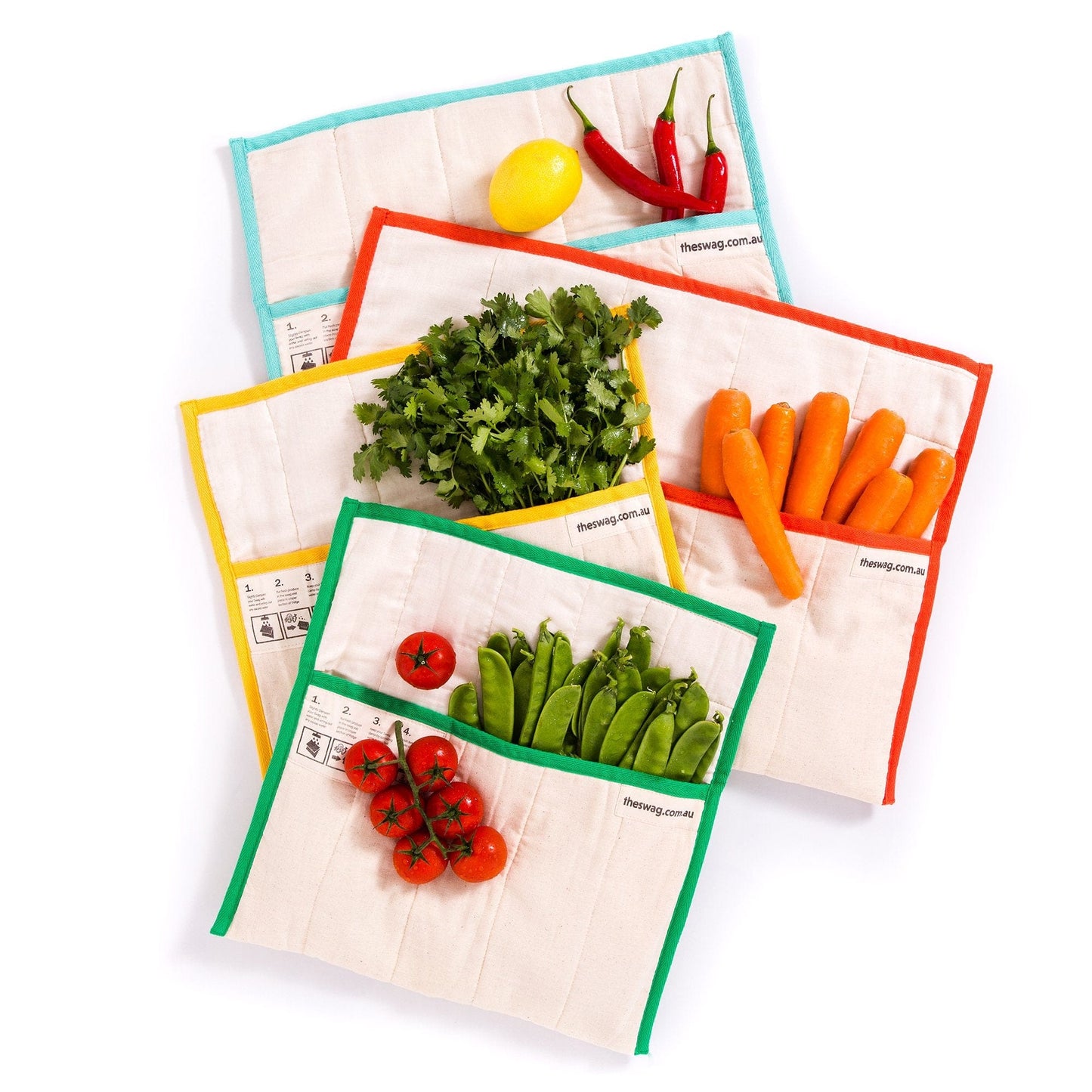How to Eat 30 Plants a Week to Improve Your Gut Health
Is 30 plants a week the new “5 a day”? Many experts, including Professor Tim Spector, a renowned gut health researcher, suggest that diversifying the plants in our diet might be one of the best steps for gut health and overall well-being. Rather than just focusing on five servings a day, the goal is to eat a wide variety of plants - aiming for at least 30 different types each week. Research shows that eating a diverse range of plants can strengthen gut microbiota, leading to improved digestion, enhanced immunity, and even better mental health.
Health Benefits of Eating 30 Plants a Week
1) Boosts Gut Health - Plant diversity feeds various gut bacteria, which aids digestion and nutrient absorption.
Eating a wide variety of plants increases the diversity of fibre and phytochemicals in your diet, which is essential for feeding beneficial gut bacteria. Each type of plant provides different fibres that nourish specific types of bacteria in the gut microbiome. These bacteria produce short-chain fatty acids (SCFAs), like butyrate, which help strengthen the gut lining, reduce inflammation, and promote better digestion and nutrient absorption. In fact, studies have shown that people who consume a wide range of plants have a more resilient gut microbiome, which can protect against conditions like irritable bowel syndrome (IBS) and inflammatory bowel diseases (IBD).
2) Enhances Immunity - A balanced gut microbiome can strengthen immune function.
A diverse, balanced gut microbiome is crucial for immune function. Around 70% of the immune system resides in the gut, and beneficial bacteria play a critical role in regulating immune responses. When you consume a variety of plants, you’re helping to maintain a balanced microbiome that can better distinguish between harmful and beneficial microorganisms. A healthy microbiome can reduce inflammation, enhance immune cell activity, and even improve vaccine response, as recent studies have shown. The result? A stronger immune system that’s better equipped to protect against infections and chronic diseases.
3) Improves Mental Health - Gut health has been linked to better mental health and a reduced risk of conditions like depression and anxiety.
The gut-brain connection is a powerful link that affects mood and mental health. Gut bacteria produce neurotransmitters like serotonin, often referred to as the “feel-good” hormone, which influences mood and emotional well-being. Research has shown that a diverse gut microbiome is linked to lower levels of stress, anxiety, and depression. By eating a variety of plants, you’re supporting a balanced microbiome, which has been shown to reduce inflammation and oxidative stress—factors associated with mental health conditions. This approach can play a role in protecting against mood disorders and promoting a more balanced, positive state of mind.
4) Supports Heart Health - A diverse plant-based diet is associated with lower cholesterol and blood pressure.
A diet rich in plant diversity is associated with better heart health markers, including lower cholesterol and blood pressure. Fibre from various plants helps reduce levels of LDL (“bad”) cholesterol by binding to it and aiding its removal from the body. Additionally, the antioxidants in plants help reduce oxidative stress and inflammation, two factors linked to cardiovascular disease. Some plants, such as leafy greens, are also high in nitrates, which can improve blood flow and reduce blood pressure. Together, these benefits contribute to a reduced risk of heart disease, stroke, and other cardiovascular issues.
By making plant diversity a priority, you’re not just meeting a number - it’s about enhancing gut health, immunity, mental well-being, and cardiovascular function with each meal. In light of World Vegan Day (on November 1st), we’re sharing practical ways to incorporate more plants into your daily meals - and to make it tasty!
What Counts as a 'Plant'?
Eating 30 plants a week sounds challenging, but it’s simpler than it sounds, especially when you consider all the types of plants you can incorporate! And the good news, is it’s not just vegetables; plant diversity can include:
- Whole Grains: For example oats, quinoa, brown rice and bulgar wheat.
- Nuts & Seeds: For example almonds, chia seeds, flaxseeds and walnuts
- Legumes: For example chickpeas, black beans and lentils
-
Herbs & Spices: For example basil, coriander, cinnamon and black pepper (yes, even a sprinkle of black pepper counts!)
Some even better news? Coffee and dark chocolate (with 70% cocoa solids or more) count too, as they’re technically derived from seeds!
Breakfast Recipe: Plant-Packed Overnight Oats

Start your day with a breakfast that’s loaded with diverse plants to kick off your 30-a-week goal!
Ingredients:
- ½ cup oats
- 1 tbsp chia seeds
- 1 tbsp flax seeds
- ½ cup almond milk
- ¼ cup blueberries
- 1 tbsp almond butter
- Dash of cinnamon
Instructions:
- Combine oats, chia seeds, flaxseeds, and almond milk in a jar.
- Stir in almond butter and top with blueberries and a dash of cinnamon.
- Cover and refrigerate overnight. Enjoy the next morning for a nutritious start!
Lunch Recipe: Hearty Grain Bowl

Combine whole grains, fresh veggies, nuts, and seeds for a balanced, plant-based meal packed with textures and flavours.
Ingredients:
- 1 cup quinoa
- ½ cup chickpeas
- ½ cup diced cucumber
- 1/2 cup chopped tomatoes
- ¼ cup shredded or sliced carrots
- Plus any other veg you have in the fridge!
- 1 tbsp pumpkin seeds
- 1 tbsp tahini
- Fresh herbs: coriander and parsley
Instructions:
- Cook quinoa according to package instructions and let cool slightly.
- Layer the quinoa, chickpeas, cucumber, carrots, and pumpkin seeds in a bowl.
- Drizzle with tahini and top with fresh coriander and parsley for extra flavour and plant diversity.
Dinner Recipe: Veggie-Packed Stir-Fry
Finish the day with a vibrant stir-fry that’s both comforting and filled with plant variety.
Ingredients:
- 1 cup broccoli florets
- ½ cup sliced bell peppers
- ½ cup snap peas
- ¼ cup edamame
- 1 tbsp sesame seeds
- 1 tsp grated ginger
- 2 tbsp tamari sauce
- Serve with ½ cup brown rice
Instructions:
- In a hot pan, add a small amount of oil and sauté ginger until fragrant.
- Add broccoli, bell peppers, snap peas, and edamame, stirring for 5-7 minutes.
- Toss in sesame seeds and tamari sauce, and serve over brown rice.
These 3 delicious recipes alone add up to a whopping 23 diverse plants! And that’s just in one day, so incorporating 30 different plants each week really is doable and delicious! By planning meals that layer in various types, from grains and nuts to fruits and veggies, you’ll not only improve your gut health but also enjoy a more vibrant and nutritious diet.



